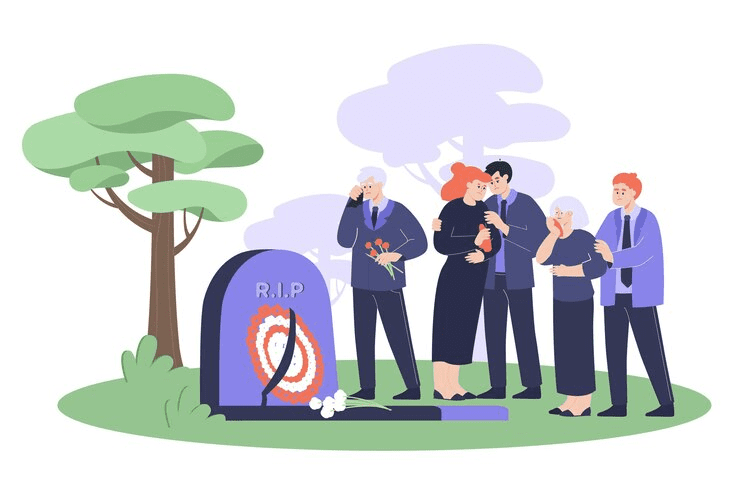Death is an inescapable part of the human experience, yet it remains one of the most challenging topics to discuss. In the realm of health, understanding death and dying is crucial for providing compassionate care, supporting those at the end of life, and fostering a deeper appreciation for the time we have. This blog explores the multifaceted aspects of death and dying, highlighting its significance in the context of health and well-being.
The Reality of Death
Death is the termination of all biological activities that allow a live creature to exist. It is a typical procedure that every living creature must go through at some point. Death, despite its inevitability, can elicit feelings of fear, grief, and uncertainty. However, by addressing and comprehending death, we may allay some of our anxieties and confront the final phase of life with more acceptance and tranquilly.
The Importance of End-of-Life Care
End-of-life care is a vital aspect of healthcare that focusses on giving ease of use, dignity, and support to those reaching the final phase of their lives. This care includes medical, mental, and spiritual components, ensuring that patients have a peaceful and painless departure. End-of-life care includes the following key elements:
- Palliative Care: Palliative care aims to relieve symptoms and improve the quality of life for patients with serious illnesses. It addresses pain management, emotional support, and coordination of care, helping patients and their families navigate the complexities of terminal illness.
- Hospice care: Hospice care is supportive treatment for individuals nearing the end of life. It emphasises comfort over cure, providing intensive care to individuals as well as their families during the dying process.
- Advance Care Planning: Advance care planning is the process of evaluating and capturing a person’s end-of-life care wishes. This covers medical treatment options, resuscitation, and other measures. Having these discussions early guarantees that a person’s preferences are honoured and lessens the stress on family members during tough times.
The Emotional and Psychological Aspects of Dying
Dying is a physical, emotional, and psychological journey. Individuals nearing the final chapter of life can go through a variety of sentiments, including fear, anger, grief, and acceptance. It is critical to give emotional support and establish a comfortable environment for patients to share their thoughts and worries.
- Sadness and Sorrow: Sadness is a normal reaction to loss that impacts both those who are dying and those closest to them. Understanding the phases of grief (disbelief, rage, dispute resolution, sadness, and acceptance) can assist individuals in navigating their emotions and coping with the imminent loss.
- Spirituality and Meaning: For many, spirituality plays a significant role in the dying process. It provides a sense of meaning, comfort, and connection to something greater than oneself. Healthcare providers should respect and support the spiritual needs of patients, whether through religious practices, meditation, or other forms of spiritual expression.
The Role of Healthcare Providers
Healthcare practitioners have an important role in assisting patients and their families as they approach the end of life. Their duties include:
- Communication: Genuine and open communication is essential for gratifying the requests of those being treated and their loved ones. Healthcare practitioners must offer detailed information about the prognosis, treatment options, and what to expect during the dying process.
- Sympathy and Care: Expressing empathy and compassion builds trust and provides comfort. Healthcare personnel should actively listen to patients and their loved ones, acknowledge their emotions, and reassure them.
- Interdisciplinary Approach: Hospice services commonly comprises a team of healthcare experts such as medical professionals, nursing professionals, social workers, and psychologists. This multidisciplinary approach addresses all areas of a patient’s well-being, from physical problems to psychological and spiritual requirements.
The Impact on Loved Ones
The death of a loved one has a profound impact on family and friends. It is essential to provide support and resources to help them cope with their loss. Bereavement support groups, counseling, and community resources can offer comfort and guidance during the grieving process.
Ending Note
Death and dying are integral parts of the human experience, and understanding them within the context of health is essential for providing compassionate care and support. By embracing the inevitability of death, we can approach the end of life with greater acceptance and peace. Through palliative and hospice care, emotional and psychological support, and the dedication of healthcare providers, we can ensure that individuals experience a dignified and meaningful end-of-life journey.

